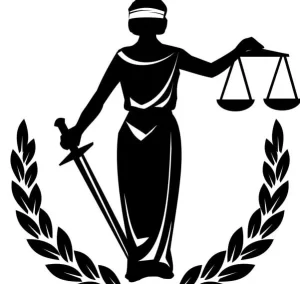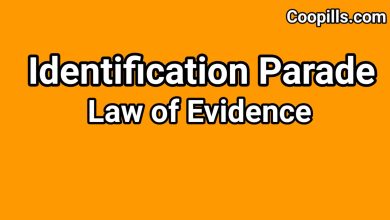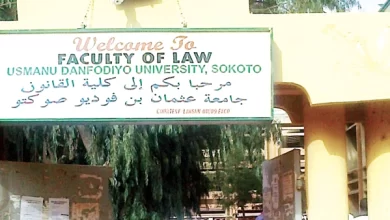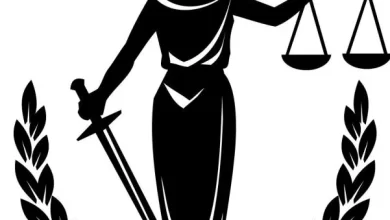Right to fair hearing in Nigeria
In this article we shall be looking at Right to fair hearing in Nigeria.

Table of Contents
Introduction
The Nigerian democratic society is governed with rules and regulations with a well-defined system of justice.
The court is an umpire holding evenly the scale of justice between the disputing parties. As a result of this, the court must ensure that justice is done to all matters and all parties before it. Justice must not only be served to the deserving party, but must also be seen to have been duly served. This is the hallmark of justice. In doing this, the court must ensure that the twin principles of natural justice are strictly adhered to in every litigation.
fair hearing
The term fair hearing is a compounding word that needs to be explicitly explained. Literally, the word “Fair” means treating people equally, justly, appropriately, moderately or politely. While on the other hand, “hearing” means an
opportunity to state one’s case. It connotes an act of listening to parties in dispute with all fairness.
Principles of fair hearing
The principle of fair hearing in legal parlance solely rests on the twin pillars of natural justice
encapsulated in the legal maxims:
(a) Audi alteram partem (hear both sides, no party should be condemned unheard); and
(b) nemo judex in casua sua (a person can’t
be a judge in his own case).
In practice, whenever an individual is arrested, he must, as a matter of law be informed of the crime, he has been accused of committing in the language he understands.
For a hearing to be fair, it must be held before a court of competent jurisdiction. Fair hearing connotes that an accused person must be present from the beginning to the end of his trial; an accused cannot be tried in
absentia.
To adhere to the natural justice principle of fair hearing, the accused person must be given the opportunity to be heard and put up a defense before he can be convicted for the alleged crime; denial of this constitutional right will render the entire proceedings nugatory and his conviction will be quashed on appeal.
Person charged with a crime shall be brought before a court of competent jurisdiction within a reasonable time, unless the charge is withdrawn, see S36(4) CFRN, 1999 as amended. See also the cases of Effiom vs the state (1995) 1 NWLR pg 373, P. 507 SC., Chinelu vs COP, Ekrebe vs Efeizomor, LPDC VS FAWEHINMI.
Notably there is no provision for “jungle justice”. As a result, any person who acts contrarily is said to have put the law into his own hands and shall be punished, thus “jungle justice” itself is a felony (a serious criminal offence) which shall be punished with fine, imprisonment exceeding a year or death as the case maybe. Also, any custom that denied an accused person the constitutional right of fair hearing is said to be repugnant to natural justice, good policy and good conscience. (see the case of Guri v Hadeija Native Authority)
It’s paramount to know that no matter how serious an offence is, it’s lighter in court of law and the accused person will still be presumed to be innocent until proved or has pleaded guilty of the offence. Reference to S36(5) of 1999 constitution of Federal Republic of Nigeria as amended.
The cases of Adeyemi vs the state (1991) and The state vs Ajie (2000) also establish the presumption od innocence by the law.
Summarily, fair hearing gives a person who is charged with a criminal offence the right to;
(a) be informed promptly in
the language that he clearly understands and in detail peculiar to the offence committed;
(b) be given adequate time to prepare for a defense against the charges;
(c) defend himself in person or through legal representative of his choice; and
(d) have interpreter to interpret if he
cannot understand the language used at the trial (this service of interpretation is without any payment). (see S36(6) of CFRN.
You may ask?
Why is the right to a fair trial important?
The Importance of fair hearing cannot be underestimated.
The fundamental right helps to make judgement without any manipulation, hypocrisy, bias and partiality which will prevent innocent citizen life from being jeopardized and endangered.
For instance, not all matters involving killing may be murder, this is because the killing may be accidental and not willingly (manslaughter). Conversely, some maimed or killed to defend themselves (self-defense). So, if freedom of fair hearing is not assured, if the principle of fair hearing is curtailed, such defenses such as manslaughter and self- defense as seen murder cases cannot be of effect.
Consequentially, it can be inferred that justice rushed is justice crushed.
In addition, fair hearing helps to decide case prudently by the court because both parties will present their cases and be heard.
Lastly, the principle of fair hearing is not in isolation but helps to maintain and consolidate the major principles of rule of law as propounded by Albert Venn Dicey viz; Supremacy of the law, equality before the law and fundamental human rights.
Conclusively, a judgement should base on due process, natural justice, equity, equality and impartiality without any form of negativism such as favoritism, nepotism, tribalism. Know your constitutional right of fair hearing and you shall be set free from any shackle of captivity because every individual is entitled to fair hearing otherwise known as due process of law, to determine his rights, duties or
obligations in civil or criminal proceedings before a competent court or tribunal. (see section 6 of CFRN 1999 as amended).
By:
Wahab Hussain K is a sophomore law student in Usmanu Danfodiyo University Sokoto. He can be reached via;
WhatsApp :08146373580
GMAIL : wahabhussain323@gmail.com
Facebook : Kehinde Hussain Wahab.









